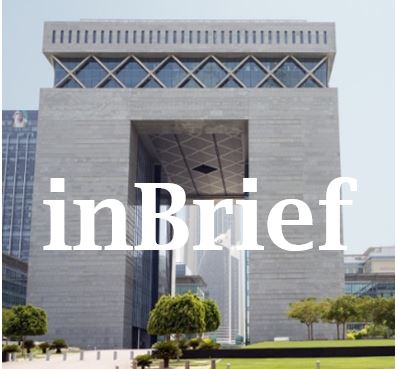The Dubai International Financial Centre (DIFC) has introduced the DIFC Prescribed Company Regulations 2024 (the 2024 Regulations), replacing the DIFC Prescribed Company Regulations 2019 (as amended in 2020 and 2022) (together the Former Regulations). The 2024 Regulations came into effect on 15 July 2024 and expand the range of applicants eligible to incorporate a so called “prescribed company” in the DIFC.
Evolution of eligibility criteria
Under the Former Regulations, the following could establish a prescribed company in the DIFC:
1.) Qualifying Applicants: entities that could demonstrate an existing nexus to the DIFC, such as already being registered within the DIFC or affiliated with a DIFC-registered entity, or meeting specific criteria (e.g., being an ‘Authorised Firm’ or a ‘Government Entity’).
2.) Qualifying Purpose Applicants: applicants engaged in specific activities such as ‘Structured Financing,’ ‘Aviation,’ or ‘Crowdfunding Structures’.
Key changes
Expanded eligibility
The 2024 Regulations require that an applicant wishing to incorporate or continue a prescribed company in the DIFC must satisfy the DIFC Registrar of Companies of one of the following criteria:
1.) the prescribed company is controlled by:
GCC Persons: individuals who are citizens of a GCC member state, bodies corporate controlled by citizens of a GCC member state, entities with securities listed on a GCC exchange, and so called ‘Government Entities’;
Registered Persons: a body corporate incorporated, registered, or continued within the DIFC, excluding prescribed companies and non-profit organisations incorporated or continued within the DIFC; or
Authorised Firms: any person holding a license granted by the Dubai Financial Services Authority or by a recognised financial regulator within the UAE or certain other jurisdictions.
2.) the prescribed company is established or continued in the DIFC for the purpose of holding legal title to, or controlling, one or more GCC Registrable Assets[1].
3.) the proposed prescribed company is established or continued in the DIFC for a Qualifying Purpose[2].
4.) the prescribed company established or continued in the DIFC has a director who is an employee of a “Corporate Service Provider[3]” and that Corporate Service Provider has an arrangement with the DIFC Registrar of Companies in accordance with Regulation 3.3.2 of the 2024 Regulations.
Employment restriction
The 2024 Regulations have introduced an express prohibition on a prescribed company employing staff. This restriction does not extend to the appointment of directors.
Conclusion
The 2024 Regulations mark a significant shift in the DIFC regulatory landscape, making it more inclusive and flexible for a wider range of applicants and purposes. We anticipate that the 2024 Regulations will make the DIFC prescribed company more attractive for use in corporate structuring. ■
–
[1] A GCC Registrable Asset is defined in the 2024 Regulations as: an asset or property interest that must registered with a GCC Authority to establish legal ownership, secure rights, or encumbrances against it, and to provide public notice of such interests, including: (a) land and real property; (b) shares in companies; (c) partnership interests; (d) intellectual property; and (e) aircraft and Maritime Vessels.
[2] A Qualifying Purpose is defined in the 2024 Regulations as being any of the following: (a) an “Aviation Structure”; (b) a “Crowdfunding Structure”; (c) an “Intellectual Property Structure”; (d) a “Maritime Structure”; (e) a “Structured Financing.
[3] A Corporate Service Provider is defined in the 2024 Regulations as: a person registered with the DFSA as a Designated Non-Financial Business or Professional that undertakes corporate services business in the DIFC.





